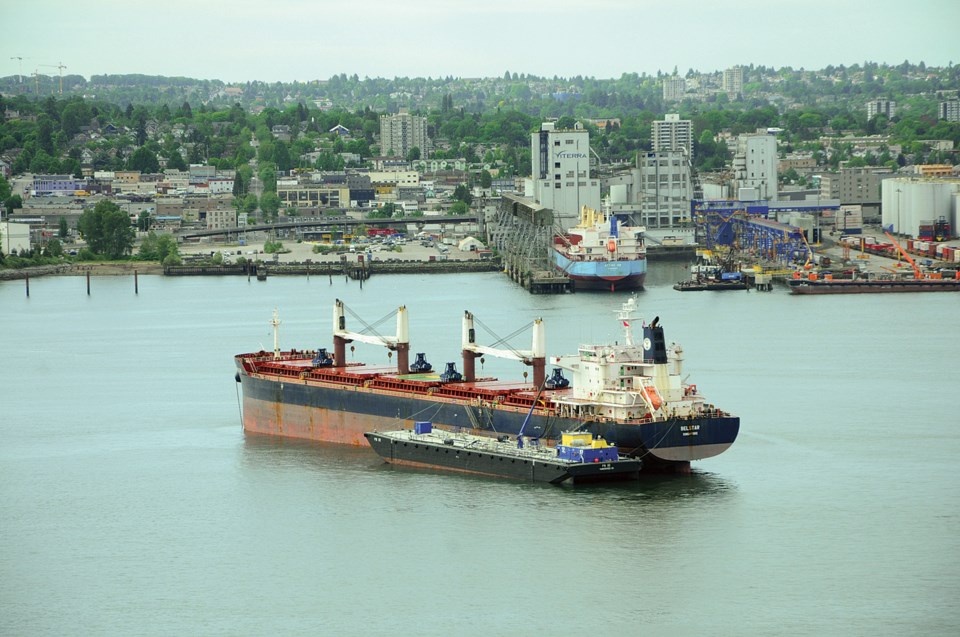Import and export activity through the Port of Vancouver has slowed down with the global economy, yet the North Shore’s grain terminals continue to export at record levels.
The port released its mid-year update last week, showing cargo volumes down 5.9 per cent over the same period last year. Grain, which is loaded to bulk carriers via Richardson International and Cargill Canada’s terminals, was up 2.1 per cent.
“I think what we’re seeing is a growing population, a growing demand, possibly the soft Canadian dollar helping the grain exporters a bit and, ultimately, good production in Canada, meaning there’s a good availability of product to export,” said Robin Silvester, the port’s CEO.
Richardson’s new grain elevator is now fully online and Cargill has completed improvements to its rail lines in the last year. Manitoba-based G3 has been given its project permit for a new grain terminal at the foot of Brooksbank.
“I believe they’re going forward to their board in the next month or two for, fingers crossed, that final investment approval,” Silvester said. “We could well be seeing construction preparation going on before the end of the year if everything goes the way we hope it would.”
As for unused port lands on the North Shore, the still largely vacant port land at the foot of St. Patricks Avenue will likely be taken up by more rail infrastructure and the port is looking into a possible land swap for an undeveloped lot on Old Dollarton Highway that would allow Western Stevedoring to expand at the foot of Mountain Highway.
“We’re pretty much done on the North Shore,” Silvester said.
Metallurgical coal and potash, which are exported from Neptune Terminals are both down, 4.1 per cent and 22.4 per cent due to slumping demand in China while corresponding imports of breakbulk steel have seen a corresponding drop, thanks to the slowdown in the oil patch, Silvester said.
The update comes as federal consultations for the Trans Mountain pipeline project are winding up. Submissions from the North Shore’s three municipalities focused heavily on the risk of a spill and the lack of ability to respond. The Trans Mountain expansion would mean tankers would cross the inlet almost daily, as opposed to the current weekly.
“That would still be only around 10 per cent of the total vessel traffic through the port. If you compare it to Rotterdam or Singapore, they have thousands of tankers per year and we wouldn’t be in that league,” Silvester said.
Still, as the regulator, the port would have its own process to ensure “the environment is protected and the cargo can move safely.”
“Collectively, the marine sector has learned a lot from the Marathassa incident, that would mean we’re in a much better place should we ever have an incident in the future,” he said. “I think quite a lot of the recommendations from (the safety review) have already been put in place, which is good. We have been advocating strongly to the federal government to follow through on the remaining recommendations from that report.”



